
Burnt Toast. No, this has no relation to any culinary misadventures and has nothing to do with Teri Hatcher either. Teri Hatcher who? Arre, Susan Mayer of "Desperate Housewives", and Lois Lane from "Lois & Clark: The New Adventures of Superman". Got it? Good. Ummm, this "Burnt Toast" is advertising professional-turned-author Sandy Kundra Verma's debut novel. Apparently after years of living on a percentage of what her B-school batch-mates were being paid and convincing herself that it was all worth it, she decided to branch out into what she liked even more: writing... and promptly burnt her toast *wink*
The story revolves around three characters: Plain Jane Moulshree Dutta, with her IIM (Calcutta) degree, the drop-dead gorgeous Kanika Anand and the once glamorous Lajja Mehta-Kapur. And their paths cross for sure. With the author too being a female of the species, this should automatically qualify as a "chick lit", no? However, I disagree. Since no novel with male characters and a male author combo is ever classified as "mutton lit". Or "beef lit" for that matter. What?
Coming back to Burnt Toast: Moulshree follows her heart and chooses advertising over Finance, preferring to spend her waking hours ideating over fairness creams, MTR masala, etc instead of stock reports, ET and number crunching. How does her family react? More specifically... how does her 'perfect boyfriend' Naresh Ghosh react? And if her life is so perfect then why is she getting drawn towards the charming and rakish Arjun Desai?
Kanika – she of the perfect smile and gorgeous looks – is jealous of Moulshree. But does she hate her? Or is there more to her than meets the eye?
Lajja Mehta-Kapur – happily married to Vishal or so she thinks.
The purpose of the book, ostensibly, is to drive home the fact that life does not always go according to plan. That life cannot be a perfect cream-cake. It is but a piece of burnt toast. You scrape off the edges to enjoy the taste.
The book provides a sneak peek into the world of advertising... the people involved in creating all those great, not so great and copycat ads. I said 'cat' and not 'Kat', mind you! Sandy has kept the jargon to a minimum, which is good. The ads talked about in the book are the ones we are quite familiar with... and one need not rack one's brains.
But I do feel that she tried to build up suspense. In fact several of them and they were all underdone. The stories have a distinct Mills & Boon feel to them and that was the way to go. For that is precisely the way one can enjoy reading this novel – with a willing suspension of disbelief and happily overlooking the inflections in the book.
Talking about inflections... there are several of them.
Moulshree Dutta is mentioned as a Brahmin with a Bengali father and a Marathi mother.
Now, Dutta (also spelled Datta and Dutt) is a surname found primarily amongst Bengalis, Punjabis and Assamese. The name is derived from the word Aditya, which means sun in Sanskrit.
Bengali Dattas (Bengali: Dôtto) are Kayasthas (Datta/Dutta) or Vaidyas (Dattagupta/Duttagupta) or merchants, making them a non-Brahmin, upper-caste group. Traditionally, many have been in the academic, legal, medical and civil service professions, typical of the bhadralok groups of Bengal (not to be mistaken with "Babumoshai".)
The most famous Bengali Datta/Dutta being: the influential figure of the Spiritual, Bengali and Indian renassiance Swami Vivekananda (1863-1902); born Narendranath Datta. Others: the great poet and dramatist Michael Madhusudan Dutt (1824-1873) – great grandfather of tennis ace Leander Paes, Romesh Chunder Dutt (1848-1909); writer, economist, historian, and translator of the Vedas and the inimitable Utpal Dutt (1929-1993); author, dramatist, director, activist and actor par excellence. Nowadays: Actress Tanushree Dutta; not sure about the 'famous' bit though.
Whereas, Punjabi Duttas are a clan of the Mohyal (Mohyyal) or Munjal Brahmins. According to the Gotra system, they are the descendants of Rishi Bharadwaj, the same as the Duttas from Bengal. Some consider Gaj Bhavan, the grandson of Rishi Bharadwaj to be the real founder of their clan. Mohyyals are one of the few "Martial" Brahmins and are distinct from other Brahmin's as not only have they been warriors, but also the men of the families have been meat eaters. One of the sayings you will hear is "Waah Dutt Sultan, adha Hindu adha Mussalman" i.e. one part of their lifestyle was Hindu (the homes were run as typical Hindu homes) and the other part was like Muslims (eating meat, dressing, vocation, etc).
Famous Punjabi Duttas/Dutts include: the late actor-politician Sunil Dutt (1929-2005); the actress and former Miss Universe Lara Dutta; and actor Sanjay Dutt of course.
Nor is "Ghosh" a Brahmin by caste in Bengal. "Ghoshal" is.
IIM (Kolkata)? The city of Kolkata (nee Calcutta) has completely changed in the last 40 odd years. The signature Ambassadors and Fiats on the city's streets have been replaced with modern cars. During the 70s, the process of renaming streets and locations in Calcutta had already started. Of course, this reached a frenzied pace in recent years with the renaming of the city itself to Kolkata.
But no matter what - Didi and red flags nothwithstanding - IIM Calcutta will retain its name and will continue to be known as IIM–C. It will NOT turn into IIM Kolkata. Except in "Burnt Toast" that is – where you find it on the back cover of the book and that too in the very first line! The only IIM-Kolkata is the Indian Institute of Metals – Kolkata Chapter... and it has absolutely nothing to do with management studies whatsoever.
Sanjayda? In Bengal, "father" is referred to as "Bapi" or "Baba". And Baba's younger brother is certainly not "Dada" to his nephews and nieces. He is "Kaka"... more endearingly "Kaku" to them. Therefore Sanjay – Moulshree's dad's youngest brother cannot be "Sanjayda" to Moulshree even though they are closer in age. The suffix "da" (short for "dada") means elder brother in Bengali.
Yes, Bengalis do not like referring to people as Uncle/Aunty/Grandpa/Grandma irrespective of their age unlike in the South of India (more precisely in namma Bengal-uru) where folks studying in SSLC (10th standard)/PUC (12th standard) will refer to a 1st year college fresher as "Uncle" or "Aunty" depending on the gender. Therefore, in Bengal Sourav Ganguly will always be "Dada" and Mamata Banerjee will forever be "Didi". But Bengalis wouldn't apply this rule to members of their own households... and "Dada" and "Kaku" will never exchange places.
Also the average Bengali women go through their entire lives without uttering "Eish" – even half the number of times that Aishwarya Rai was made to utter in SLB's Rs. 30-crore magnum opus "Devdas". So much for stereotypes!
Sandy has used too many Hindi words... especially for Lajja Mehta-Kapur. Too many "matlabs" do not assist in emphasising her small town roots but end up jarring the reader's sensibilities instead. Completely unnecessary, I would say. Also phrases like "Rajji Baby" and "My dear baby-boo" – to refer to someone special - is totally uncool and quite Yuk.
The production quality of the book is quite decent but the book jacket cover is nicely done. It certainly catches the eye. However, I feel that the titles of the chapters reveal too much, and rob off the charm and suspense (if any) of the following pages.
My rating: I am going with a generous 3/5. "Burnt Toast" makes for a light read – a breezy and entertaining read only if you expect a somewhat M&B-esque romance and storyline. There is no suspense, no whodunit whatsoever. Flushed face, racing pulse and sweaty hands notwithstanding... and there are no flames threatening to destroy anyone's life. Even remotely!
Details of the book: Burnt Toast/ Author: Sandy Kundra Verma/ Publisher: Rupa Publications/ Seller: Rupa & Co./ Language: English/ ISBN: 978-8129117878, 8129117878/ Bookbinding: Paperback/ Price: Rs. 195/ No. of pages: 238.

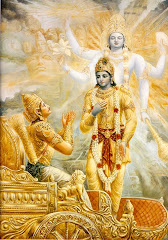



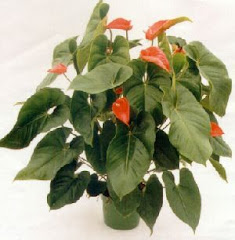


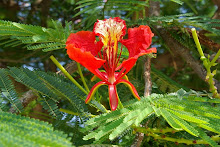

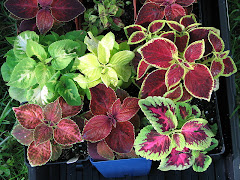
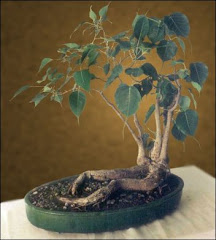
So much research goes into your posts, Roshmi!
ReplyDeleteI have forwarded this review to my niece who is a voracious reader!
@ Sandhya: Thanks a bunch Sandhyaji! Much appreciate :)
ReplyDelete